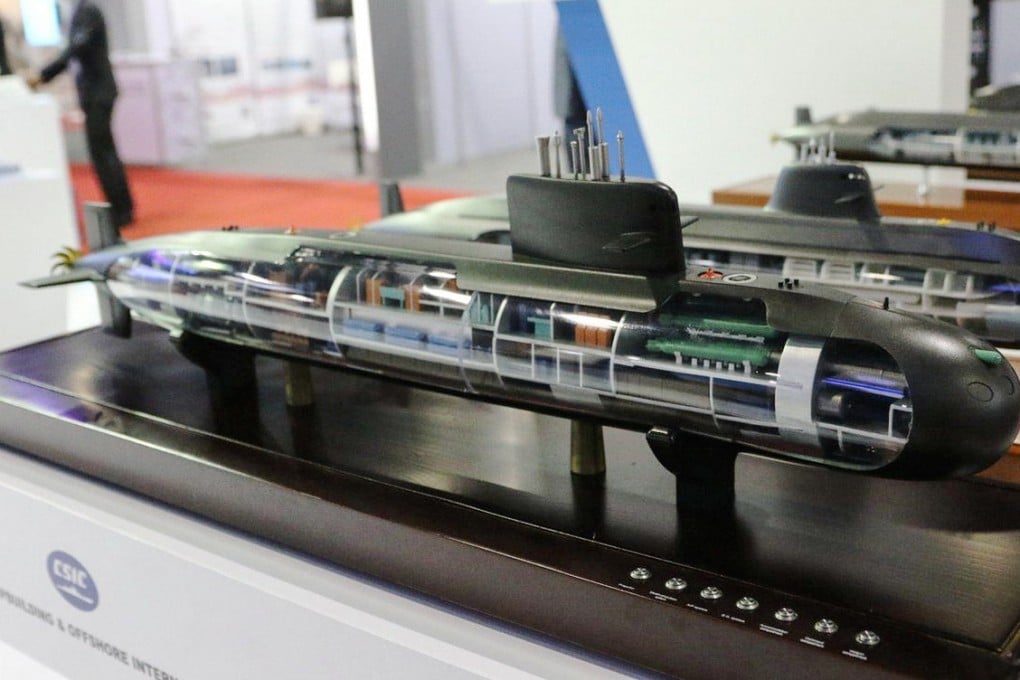Advertisement
Thailand’s Chinese submarine order hits snag after Germany’s export embargo on MTU engines
- The first Yuan Class S26T worth US$408 million is being assembled without German engines as promised, said a Thai opposition lawmaker
- German military attaché says German engines cannot be used in Chinese military and defence items
Reading Time:4 minutes
Why you can trust SCMP
27

Thailand’s purchase of a Chinese-made Yuan Class S26T submarine worth 13.5 billion baht (US$408 million) has stalled over the manufacturer’s failure to obtain German-made diesel engines as stipulated in the contract.
State-owned conglomerate China Shipbuilding & Offshore International signed an agreement with Thailand’s Navy in 2017 for the submarine. The Thai navy said the deal was a government-to-government type, however, it bypassed any approval from the military-backed appointed parliament or the office of the auditor general.
The first vessel is expected to arrive in 2024, but a Thai opposition lawmaker – who was on the parliamentary subcommittee scrutinising the navy’s budget for the 2021-22 financial year – revealed last month that the submarine was being assembled without the engines.
Yutthapong Charasathien of Pheu Thai, the party linked to exiled premier Thaksin Shinawatra, told a press conference on February 27 that China was currently facing a problem in obtaining engines made by German manufacturer MTU.
“Why didn’t Thailand deal with countries that can produce their own submarine’s engines? Why would the Thai navy continue with the plans to buy the second and the third when the first one did not get an engine yet? I still insist the purchase is not transparent,” he said.
Yutthapong and other opposition lawmakers were part of a minority group that opposed the vote to approve the navy’s procurement of another two submarines in 2020. The navy recently delayed the budget proposal of the two vessels worth 22.5 billion baht citing the state of the Thai economy due to Covid-19.
It followed a backlash from the Thai public who slammed the deal as being extremely inappropriate given the economic situation, saying the country should use its funds to obtain vaccines for the population.
Advertisement